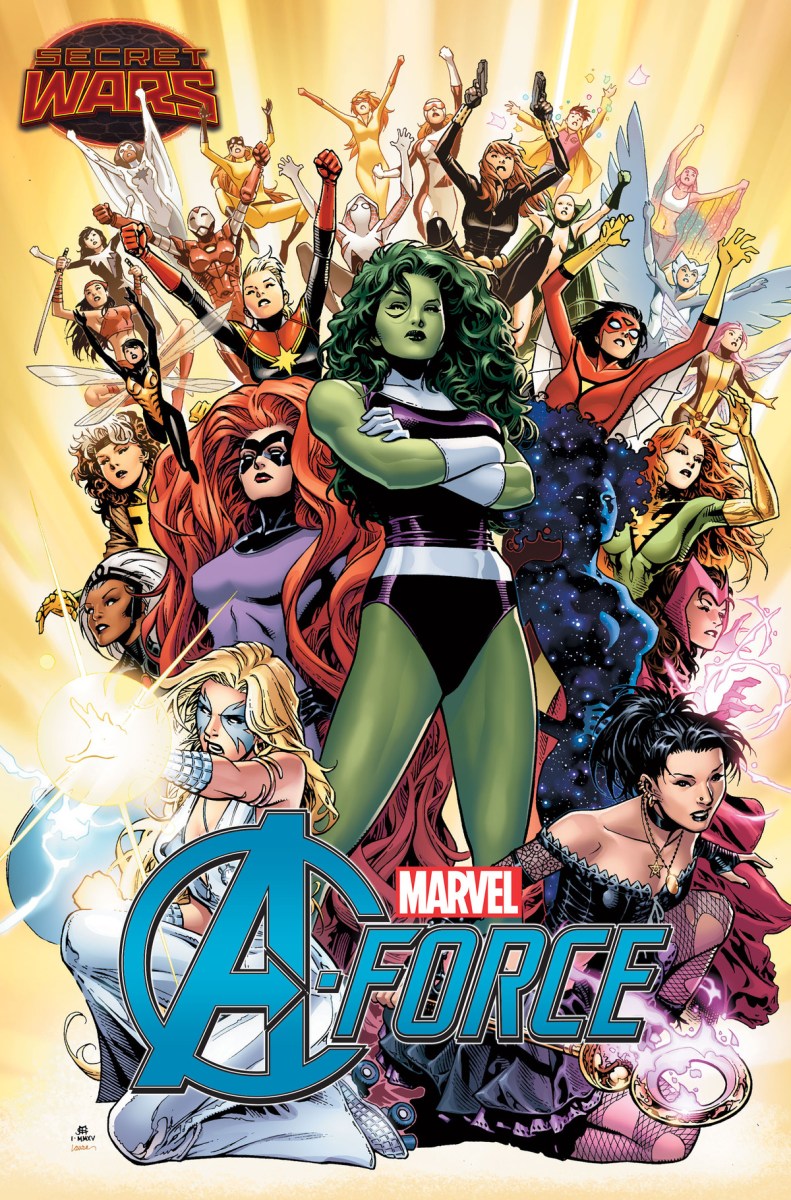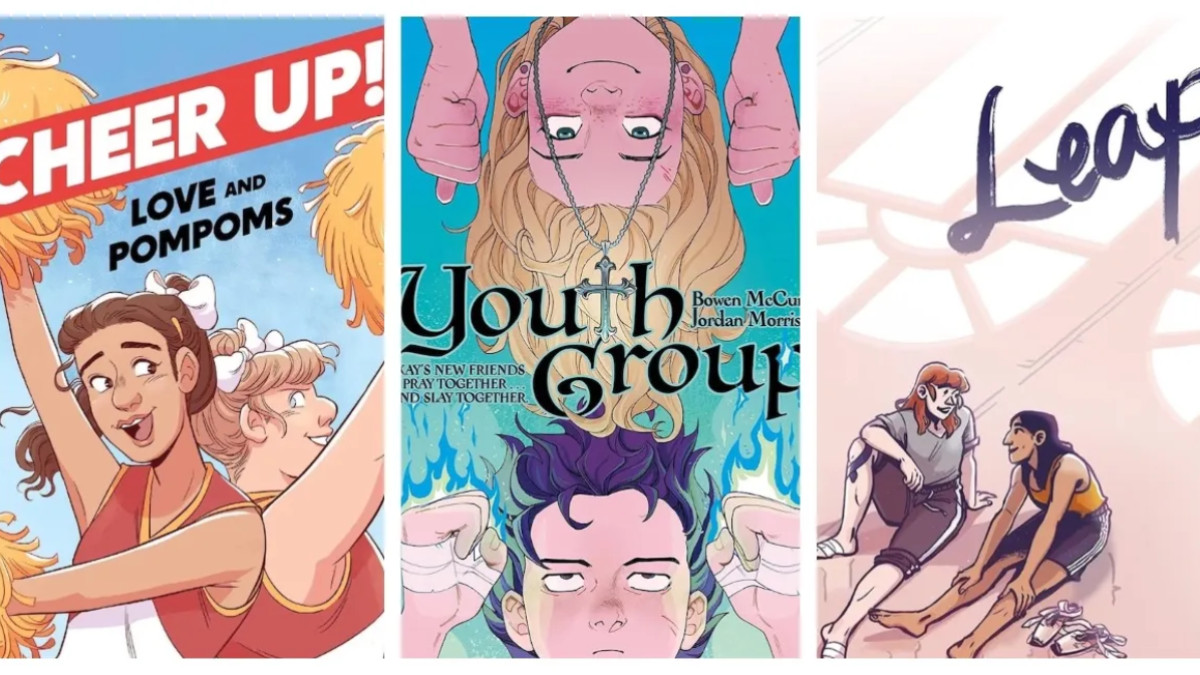[Editor’s Note: The following was originally posted on G. Willow Wilson’s tumblr and has been republished with permission. She is the current writer of Ms. Marvel and A-Force for Marvel Comics.]
So I was the last person on the internet to find out about this little op-ed by Jill Lepore. When Harvard professors are throwing shade on you from the rarified heights of the New Yorker, you have officially arrived in life, or at least in comics. So I was rather chuffed by this piece, though I do want to respond to some of the points raised, because they tie into some of the broader conversations we’ve been having lately in the comics community. I’d like to give a shout-out to Valkyrie Leia Calderon for drawing my attention to this piece–you can read her thoughtful and candid open letter to Dr. Lepore here.
If you are an avid comic book reader and/or follower of industry trends, none of what I’m about to say will be news to you. However, for those of you who are new to the medium, returning to the medium, or just interested in the continuing debate on the role of gender in pop culture, I hope what follows will be useful and help flesh out the conversation.
First off, a funny tidbit: Dr. Lepore and I have met, though she probably doesn’t remember, as I was a scrappy teenager with a fauxhawk at the time. Way back when I was an undergraduate, she gave a guest lecture on the French and Indian Wars in an American History colloquium I was taking at Boston University. She struck me as very intelligent and thoughtful, a passionate historian.
So I was a bit surprised that someone who obviously values rigorous scholarship would analyze the first issue of a crossover event without any apparent knowledge of what a crossover event is, or what the heavily tongue-in-cheek “feminist paradise,” Arcadia, represents in the context of the Secret Wars and the wider Marvel Universe. (Does she know about the zombies? Somebody please tell her about the zombies.) Thus decontextualized, what Dr. Lepore is left with is a cover depicting a bunch of characters about whom she admits to knowing nothing, and one fifth of a story, which is perhaps why her analysis reads as so perplexingly shallow, even snarky.
Genre–whether it’s action/adventure, romance, scifi, fantasy, or superheroes–largely differentiates itself from “mainstream literature” by its heavy reliance on tropes. The lone survivor in a post-apocalyptic landscape. The reluctant paladin called to defend his or her homeland. The white knight. The savior-sacrifice, who must pay the ultimate price to keep the darkness at bay. Good genre books and films succeed because the authors or artists have manipulated these tropes in a particularly skillful way, either by subverting them or unpacking them or, occasionally, pointing right at them. Some of the most stunning works of SF/F produced in the past couple of decades–those that have shifted the cultural conversation–have been those that rely the most heavily on tropes, on what we think we know about a certain genre, and which then proceed to show us, almost by slight-of-hand, what we have overlooked. The Walking Dead. Gravity. District 9. The superb Children of Men. What is masterful about each of these is that the creators exhibited no embarrassment whatsoever about their pulpy source material–instead, they dug deep into the ‘how’ and the ‘why’ and the ‘who’ and used tropes we might have considered all played out (the astronaut in trouble, the zombie apocalypse) to illustrate profoundly heartbreaking things about the human condition. That is, perhaps, genre in a nutshell: it is cliche turned on its head.
I’m not going to sit here and pretend that A FORCE is somehow comparable to one of Alfonso Cuaron’s masterpieces. I will, however, suggest that Dr. Lepore read modern comics with a little less credulity. You are not meant to say the words “feminist paradise” with an entirely straight face. We, the creators and editors (three women and a gay dude, by the way) are aware that the characters in A FORCE come from a bewildering mashup of genres and mythologies and time periods. That’s the whole point. A FORCE comes out of a very specific conversation about gender in comics that has been evolving rapidly in the past few years, driven as much by fandom as it is by creators and editors. Across the industry, we have been systematically un-fridging (I’ll let Dr. Lepore google that one) female characters who may have gotten short shrift in the past, looking at their backstories, and discovering, as a community, what has been left unsaid. And in A FORCE, we’ve put them all together–for the first time.
It’s unfortunate that Dr. Lepore chose to characterize the costumes worn by the women on the cover of A FORCE #1 as ‘pervy’ and pornographic. (The pervy part especially–this may be a generational difference, but these days it’s generally considered old fashioned, if not somewhat bigoted, to use that word in a pejorative fashion. New Yorker style guide editors: take note.) I don’t know what kind of porn Dr. Lepore enjoys, but as far as I know, outside of some niche industry for wrestling singlet kink (I’m sure one exists), most porn stars don’t show up for work in what are essentially full-coverage gymnastics leotards. What is terribly ironic about her critique on this front is that she fails to realize–probably because of her lack of familiarity with any of these characters–that these specific iterations of our heroines’ costumes were purposefully crafted to resemble those of male superheroes. They are, for the most part, fully covered–a profound departure from the teeny bikinis of the 80’s and 90’s, while still cognizant of the fact that these characters are superheroes, and superheroes–male and female alike–wear funky colored latex. If Dr. Lepore is categorically opposed to latex, she should consider trolling a different genre.
The heroines on the cover of A FORCE #1 are also posed in a very specific way. They face us head-on. She Hulk has her arms crossed over her chest. Nobody is in the brokeback pose (I’ll let Dr. Lepore google that one too), nobody has her butt up in the air. None of them are in the sexually objectified contortions that have become standard issue in recent decades. They are, in other words, posed the way their male colleagues are typically posed. They are posed as heroes.
To anyone familiar with the often heated dialogue surrounding the role and representation of women in comics, these choices are pretty symbolic. There are many women (and plenty more men!) in the comics industry and in comics fandom who have fought hard to get us to this point–costumes that cover the butt, book covers where no one is spread-eagle, storylines that don’t involve women being sexually brutalized in order to provide motivation. This may not seem like much to someone outside the comics-reading community. But to those of us with a vested interest in this medium–who do not aspire to whatever self-congratulatory bar of high culture Dr. Lepore requires us to leap over in order to be considered ‘real’ artists–it is a coup.
It is a shame that, in this recent wave of mainstream media attention toward comics, actually reading comic books does not appear to be a prerequisite. And it shows. Where is the call to action in Dr. Lepore’s article? What is the aspirational message we are meant to take away? Who does she imagine she is helping? What is the appropriate amount a 9-foot-tall green woman should cover up in order not to be considered ‘pervy’ by Harvard professors? Can we get a hem length?
Dr. Lepore provides no answers, and in all likelihood, she never intended to. Her article is a very crisp demonstration of the difference between criticism from within the community–criticism from people who love comics and want to see them succeed–and criticism from the self-appointed gatekeepers of art and culture, who categorically do not give a shit. This is what it looks like, folks! Let every disgruntled fan who’s been punching down on women in comics for the past couple of years read Dr. Lepore’s article and decide which argument they’d rather have.
I have been a little cheeky thus far, so let me close by saying that I imagine Dr. Lepore and I want the same thing: better, more nuanced portrayals of women in pop culture. What I don’t understand is why someone in her position would, from her perch a thousand feet up in the ivory tower, take pot shots at those of us who are in the trenches, doing exactly that.
—Please make note of The Mary Sue’s general comment policy.—
Do you follow The Mary Sue on Twitter, Facebook, Tumblr, Pinterest, & Google +?









Published: May 13, 2015 12:36 pm